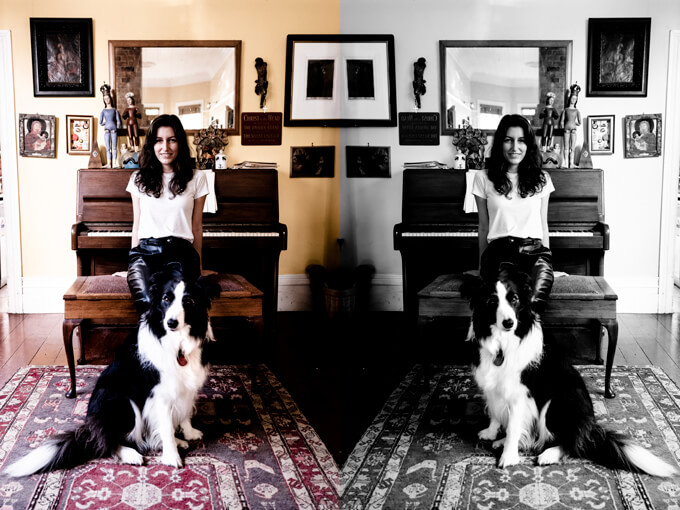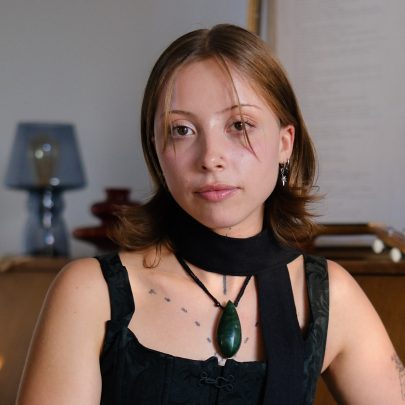Jul 18, 2019 Books
Ruby Porter is a writer. It’s what she’s done since she was 12, dreaming up short stories while bored and alone on school holidays in the “mini dystopia” of Levin.
Since then, she’s finished a master’s degree in creative writing at the University of Auckland, and won the inaugural Michael Gifkins Prize to have an unpublished manuscript published in New Zealand and Australia. That novel, Attraction, was released in May by Text Publishing. Soon, she’ll start a PhD, which will include writing a second novel.
“I feel hugely grateful, and it is still kind of surreal, even just to have a real book,” she says. “I’ll see it in places and be like, ‘It exists in the wild!’” Attraction has led to the 26-year-old Porter being compared to another young author who, like her, is fascinated by the intricacies of modern relationships. Her writing “has the intensity of Sally Rooney”, wrote one critic. The comparison thrills her. “She’s one of my favourite writers.”
Porter describes the “whirlwind experience” of reading Rooney, “where you just can’t put it down, and that’s kind of delicious, almost guilty. There’s sometimes this prejudice against stories about young or formative relationships, as if it has to be about something more and that’s not enough, and I loved how much Normal People disproved that. You know, we’re all crying out to read a good love story.”
Attraction is about relationships, too, but not always about love. Three young women go on a road trip from Auckland to Whangara, on the East Coast, then on to Levin. The book’s unnamed narrator is in an almost antagonistic quasi-relationship with one companion and best friends with the other.

The story explores how they relate to one another, but also to the land they’re travelling on. The overarching issues of colonialism, cultural amnesia and late capitalism in modern New Zealand deeply affect the narrator, who can’t seem to figure out how to love unself-consciously and without guilt. “She’s really bad at engaging with one of the only Maori people in her life,” Porter says. “She has a very white life. She is engaged with these issues theoretically at university, [but] she doesn’t actually have many Maori friends. She’s so embarrassed about getting things wrong, she just doesn’t engage with them at all.” In one scene, the narrator becomes so embarrassed about misspelling the name of a local marae on an envelope containing a koha, she ends up keeping the money for herself.
Porter hasn’t tried to write a story of white guilt, but rather a critique of its utter uselessness. This is part of the duty she feels she has as a Pakeha author to explore issues of Pakeha-Maori relations. “I think to not engage with it at all and to put it in the laps of Maori people is just not doing our fair share of the work,” she says.
Porter is aware of her own blind spots, like the fact she had automatically associated rural parts of the East Coast with the effects of colonisation, but not Auckland, where she’s from. “I’d naturally set something in Auckland and not think I need to engage with that, and that was interesting for me as a writer. I live on stolen land; it’s just that memory has been pushed down, there’s more cultural amnesia in these urban settings about what came before.” Rather than just feel guilty about this realisation, she became proactive, researching the history of Ponsonby, where she now lives.
Paula Morris, Porter’s master of creative writing (MCW) adviser, describes her as a natural writer who isn’t worried about pleasing “some invisible committee of readers”. “Ruby brings knowledge and sensitivity, and a sharp eye for hypocrisy and hidden histories, rather than plodding earnestness,” Morris says. “Ruby interrogates contemporary New Zealand, and she’s always interested in what lies beneath.”
Skill and talent combined with a willingness to work hard on writing and revising meant Porter held her own as a rare student admitted directly to the MCW from undergraduate study. “When she won the Gifkins Prize, I wept,” says Morris. “I was so thrilled for her, and relieved that her talent — and the excellence of her novel — would be recognised.”
Porter didn’t set out to write a book explicitly about colonialism, preferring to be led by her characters so as not to write a contrived piece of work about “big ideas”, but as Morris told her would happen, her obsessions came through in the text. “It’s such a fascinating time,” she says. “There’s so much to write about.” Personal and cultural amnesia — the deliberate forgetting we engage in to make sense of life — are themes Porter is excited to explore further. “Memory is so fascinating to me. It’s always constructed. Our memory is so personal to us, but we trust it when we really shouldn’t.”
This piece originally appeared in the July-August 2019 issue of Metro magazine, with the headline “So Much to Write About”.






